
Viking Names
Bui
An original byname Búi, from búa ‘to dwell’, was found in Norway and Iceland as a personal name and byname, but is rare there. In the form Bōi, later Bo, it is very common in Denmark and Sweden, where it appears in several runic inscriptions as bui and is found in the Latin forms Boecius and Boetius. It is possibly found in three Normandy place-names and it is potentially the first element in Boothorpe, Leicestershire.
Read More
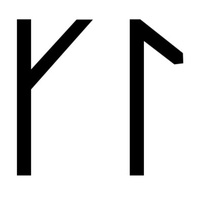
Viking Names
Broklaus
The postulated Old Norse male personal name Bróklauss is likely an Anglo-Scandinavian formation. It is originally a byname from the Old Norse elements Brók- ‘breeches’ and -lauss ‘less’. It is the first element in the place-name Brocklesby, Yarborough Wapentake, Lincolnshire, and in a field-name in Broughton, in Manley Wapentake, also in Lincolnshire.
Read More

Viking Names
Snip
The Old Norse byname Snípr may be related to Modern Norwegian snipa ‘miser, unsociable person’. A single instance is recorded in Norway in 1335. It is also the first element of the place-name Snibstone, Leicestershire.
Read More
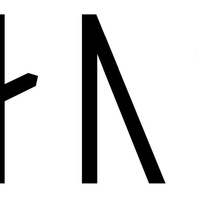
Viking Names
Gauti
Gauti and the related Gautr are short forms of names in Gaut- or -gautr, or an original byname meaning ‘man from Gautland’. This region comprises the provinces now known as Östergötland and Västergötland in southern Sweden, and is the homeland of the Geats in the Old English poem Beowulf. Gauti is recorded in several Swedish runic inscriptions. Gauti is the first element of the place-names Gautby, Lincolnshire and Goadby Marwood, Leicestershire.
Read More

Viking Names
Krok
Krókr, an original byname meaning ‘crook-backed’, related to Old Norse krókr ‘hook’, or possibly ‘crooked-dealer’. It is a rare and late personal name in West Scandinavia, but is more common as a byname early. The personal name is also recorded in Sweden and Denmark and is found in a Danish runic inscription as well as in several Danish place-names. Additionally, the name is probably found in Normandy. The name is common throughout the Danelaw and found in many place-names such as South Croxton and Croxton Kerrial in Leicestershire and Croxall, Staffordshire (formerly of the Repton and Gresley Hundred of Derbyshire).
Read More
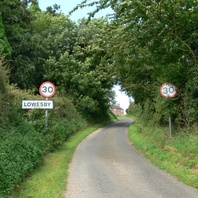
Viking Names
Lowesby
Lowesby, in the East Goscote Hundred of Leicestershire, is a difficult name. The first element possibly comes from the Old Norse male byname Lauss/Lausi ‘loose-living’. Alternatively it has been suggested that the first element could be derived from the postulated Old Norse element lausa ‘a slope’ which is found in Scandinavian place-names in the forms -lösa/-löse; however, this element was no longer used for place-naming by the time of Scandinavian settlement in England. The second element is Old Norse by ‘a farmstead, a village’.
Read More
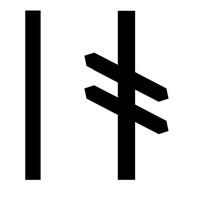
Viking Names
Bjor
Bjórr is an original byname meaning ‘beaver’. It is recorded in a Norwegian runic inscription as the name of a mane who took part in Cnut’s expedition to England and died there (c. 1015). Biur is recorded in Sweden as a byname.
Read More
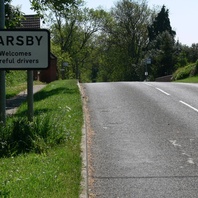
Viking Names
Barsby
Barsby, in the East Goscote Hundred of Leicestershire, likely comes from the Old Norse male personal name Barn, originally a byname from Old Norse barn ‘a child’, and the Old Norse element by ‘a farmstead, a village’. Alternatively, the first element may be barn itself.
Read More
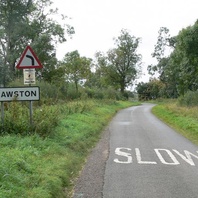
Viking Names
Slawston
Slawston, in the Gartree Hundred of Leicestershire, is an Anglo-Scandinavian hybrid from the Old Norse male personal name Slagr (Middle English genitive singular Slages), which appears to be originally a byname either from slœgr ‘sly, cunning’ or, less likely, from slagr ‘a blow, a stroke’ and the Old English element tun ‘farm, settlement’. This village might have been an Anglian settlement that was appropriated by a Scandinavian from the Viking army which disbanded in the area around 877 rather than a later manorial creation. Slawston is near Blaston, another township with a hybrid Old English/Old Norse place-name which could represent a similar appropriation.
Read More
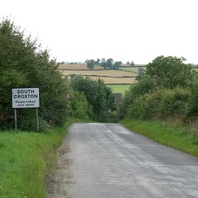
Viking Names
South Croxton
The first element of South Croxton, in the East Goscote Hundred of Leicestershire, likely comes from the Old Danish male personal name Krok (Old Norse Krókr, Middle English genitive singular Crokes), originally a byname meaning ‘crooked-back’, or possibly ‘crooked-dealer’ related to Old Norse krókr ‘hook’. Alternatively the first element could be Old English croc ‘a crook’, that is relating to a location situated in a nook or bend of land. The second element of the place-name is Old English tun ‘an enclosure; a farmstead; a village; an estate’. The Middle English affix suð ‘south’ distinguishes South Croxton from Croxton Kerrial in the Framland Hundred.
